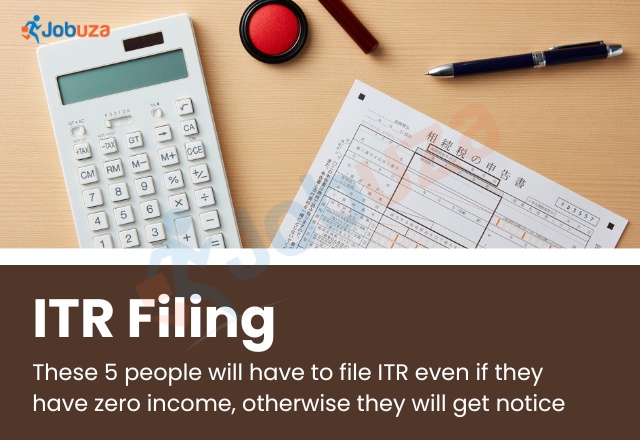ITR Filing Rules 2025: 5 Types of People Who Must File ITR Even with Zero Income
ITR Filing 2025: Many people believe that if their annual income is below the tax exemption limit, they don’t need to file an Income Tax Return (ITR). But this is not always true.
The Income Tax Department has made it clear that in some cases, filing ITR is compulsory, even if your income is less than ₹2.5 lakh (Old Regime) or ₹3 lakh (New Regime). Ignoring these rules can lead to penalties or even a legal notice.
Here are the five situations where filing ITR is mandatory, even with zero taxable income.
1. Depositing ₹1 Crore or More in a Current Account
If you deposit ₹1 crore or more in your current account during a financial year, you must file ITR.
This rule applies to both cash and digital deposits. The Income Tax Department uses this information to track high-value transactions and prevent tax evasion.
2. Spending ₹2 Lakh or More on Foreign Travel
If your foreign travel expenses are ₹2 lakh or more in a year, you have to file ITR.
It doesn’t matter whether the trip is personal or business-related. This rule helps the government track big-ticket expenses and ensure income reporting is accurate.
3. Paying More Than ₹1 Lakh in Electricity Bills
If your total electricity bill for the year is above ₹1 lakh, filing ITR becomes compulsory.
This rule targets people whose lifestyle expenses are higher than their declared income. It helps the tax department identify mismatches between income and spending.
4. TDS Deduction of ₹25,000 or More
If TDS (Tax Deducted at Source) of ₹25,000 or more has been deducted from your income in a financial year, you must file ITR.
For senior citizens, the limit is ₹50,000. Since tax has already been deducted, the government requires you to report your income officially.
5. Owning Foreign Property or Bank Accounts
If you own property abroad or have signing authority in a foreign bank account, you are required to file ITR.
You also need to declare details of any foreign income, property, or assets while filing your return.
Final Words
Even if your income is below the tax exemption limit, you might still need to file ITR under certain circumstances.
Doing so not only keeps you compliant with the law but also helps you maintain a clean financial record. This is useful when applying for loans, visas, or other financial services in the future.


